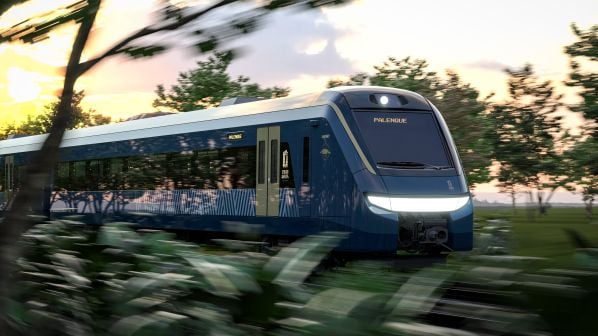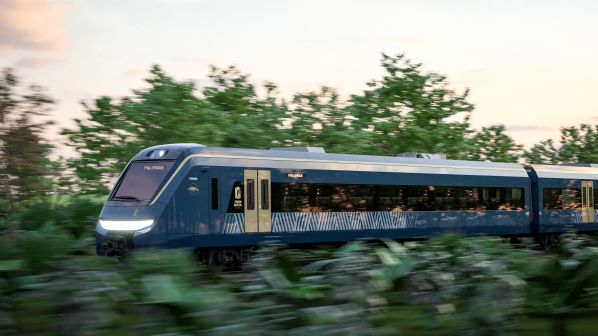ALSTOM has revealed the details of the 42 X’trapolis trains it will supply for the 1452km Mayan Train project on Mexico’s Yucatan peninsula, under a €1.3bn contract awarded to the consortium it is leading on May 26.
The consortium includes Alstom Transport Mexico, Bombardier Transportation México, Gami Ingeniería e Instalaciones and Construcciones Urales Procesos Industriales. Alstom-Bombardier’s share of the contract amounts to nearly €1bn.
Mexico’s National Fund for the Promotion of Tourism (Fonatur) announced the Alstom-led consortium as the winning bidder after its technical committee endorsed the consortium’s operational, technical, and economic proposals. The consortium’s bid was selected on cost, degree of national integration, delivery times and design proposals.
The consortium will be responsible for the design, manufacture and commissioning of the 42 trains, comprising 32 electro-diesel and 10 diesel sets, as well as the full signalling system including the design, supply and installation of ETCS Level 1 onboard systems and more than 1500km of trackside equipment including ETCS, interlockings, traffic management and telecommunications systems. The consortium is also responsible for the construction of the maintenance workshops and depots and the after-sales service of the system’s equipment.

Alstom’s new Mayan Train X’trapolis model is based on the X’trapolis platform which features a modular interior. The train will also use components and expertise from the acquisition of Bombardier, including its lightweight Flexx Eco bogie, designed for a maximum speed of 176km/h.
The consortium will offer the X’trapolis in three distinct configurations: a flexible standard service set-up (Xiinbal); an arrangement prioritising restaurant cars (Janal); and a third long-distance sleeper configuration (P’atal).
Each version will feature ample leg room, a high-performance air-conditioning system, wide windows, large luggage spaces with overhead racks based on those used in Alstom’s Coradia intercity trains, and vertical racks in each car. Passengers with reduced mobility will also be able to move through the full length of the trains. Alstom will manufacture the 42 trains at its Ciudad Sahagún Hidalgo plant.
“We are extremely proud to have been selected to supply the Tren Maya - a train for Mexico, built in Mexico - as well as its full signalling system,” says Alstom México general director, Mr Maite Ramos. “The design of the three types of trains - Xiinbal, Janal and P'atal - is exclusive to Mexico and inspired by the Mayan culture, where the majestic jaguar’s lines, speed and beauty were inspirational elements for the train. The manufacturing of the Tren Maya will begin immediately, with Mexican labour, after the signing of the contract.”
The trains will be operated on the first five sections of the line from Palenque via SF Campeche, Izamal, and Cancun to Tulum. There is also an option to purchase an additional 27 sets for the remaining two Mayan Train sections, which are new build sections between Tulum, Bacalar and Escárcega. The network will be electrified on a 690km stretch between Merida on section three and Chetumal on section six.
For an in-depth report on the Mayan Train project, see the November 2020 edition of IRJ p36, or click here.
For more data on North American rail projects, subscribe to IRJ Pro.

